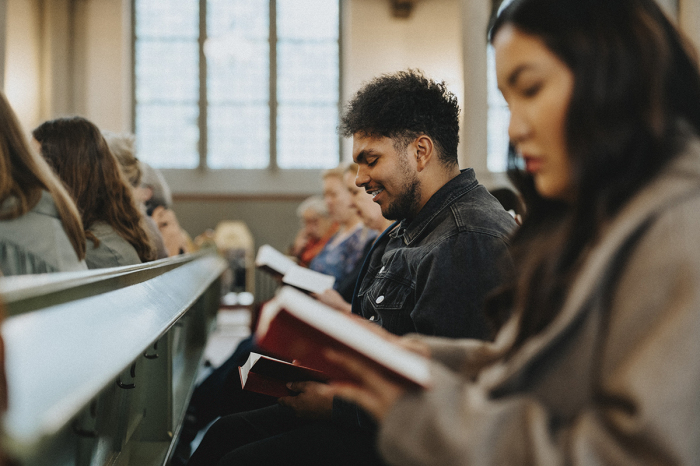
Public trust in the church as an institution has risen after three years of stagnation, with 36% of Americans now saying they have a great deal or quite a lot of confidence in it. The shift, recorded in Gallup’s latest survey on the topic, marks the first significant increase since 2020.
Confidence in the church had fallen to 31% in 2022 and remained around 32% over the following two years, near its lowest recorded levels. Gallup has tracked this trend annually since 1973, when trust stood at 66%, reaching a high of 68% in 1975.
The only other major rebound in recent decades came in 2001, when post-9/11 sentiment briefly raised confidence to 60%, the last time the institution earned such broad support, as reported by Lifeway Research.
The latest numbers show the American church regaining some ground, matching levels last seen in 2021 when confidence was at 37%. While still far from majority support, the increase is notable across several demographics, particularly among political conservatives.
Among Republicans, trust in the church jumped from 49% in 2024 to 64% this year. That change aligns with broader gains in institutional confidence among Republican voters following the reelection of President Donald Trump.
In contrast, confidence in the church fell slightly among Democrats, from 22% to 21%, and rose modestly among independents from 28% to 30%, according to Gallup.
The divide along party lines follows political patterns in institutional trust. In the same survey, Gallup recorded a 73-point increase in Republican confidence in the presidency, while Democrats’ trust in that office dropped 58 points. Gallup noted that partisan control of institutions plays a central role in public trust, stating that confidence often correlates more with political affiliation than with institutional performance.
Women, younger Americans and lower-income households showed marked increases in trust toward the church over the past year. Women’s confidence rose eight points to 36%, closing the previous gender gap. Americans aged 18 to 37 experienced the largest increase, rising from 26% to 32%. Those aged 38 to 54 increased three points to 31%, and Americans 55 and older grew from 39% to 42%.
Trust among black and Hispanic Americans remained lower than among white Americans, but all groups showed modest gains. Thirty-one percent of black Americans and 33% of Hispanic Americans expressed high confidence in the church, compared to 37% of white Americans. In 2024, the figure for all non-white respondents stood at 30%.
Those with some college education but no degree reported one of the steepest increases — up 11 points to 36%. People earning less than $50,000 per year also grew from 31% to 39% in confidence, while those in households earning more than $100,000 rose from 29% to 36%.
Despite the increase, the church still ranks behind small businesses (70%), the military (62%), and science (61%) in terms of public trust. It falls in the middle tier, alongside the police (45%), higher education (42%), and the medical system (32%).
Institutions with lower levels of confidence than the church include the presidency (30%), banks (30%), public schools (29%), the U.S. Supreme Court (27%), and large tech companies (24%). Newspapers (17%), the criminal justice system (17%), big business (15%), television news (11%), and Congress (10%) occupy the bottom of Gallup’s 2025 ranking.
Gallup’s Megan Brenan noted that institutional trust tends to shift dramatically depending on which party holds power. “… Partisans’ confidence is easily restored when their political party controls the institution,” she wrote. “The flip side, of course, is that the confidence of the other party’s supporters declines when their party loses power.”
The average public confidence across the 14 institutions measured by Gallup remains low. This year, just 28% of Americans reported high trust in these institutions overall, the same as in 2024.

















